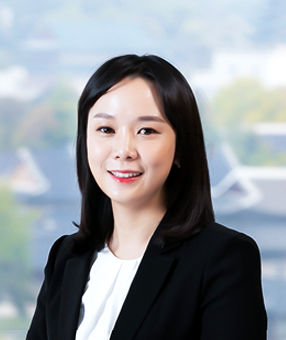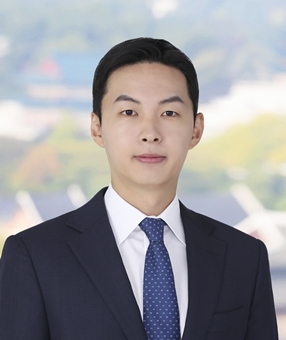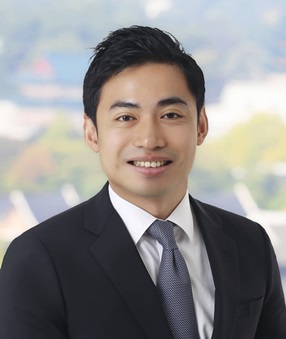In this case, the Korea Fair Trade Commission ("KFTC") attempted to actively regulate the exercise of intellectual property rights under the pretext of revitalizing regulations on the abuse of a market-dominant position and revitalizing the international service organization (ISO) market, following the Supreme Court's en banc decision in the POSCO case (Supreme Court en banc Decision 2002Du8626 decided November 22, 2007). Representing Siemens Healthineers, the plaintiff in this case, Kim & Chang (hereinafter referred to as "Kim & Chang" or "we") successfully secured a favorable judgment in the Seoul High Court, which was subsequently upheld by the Supreme Court, and the appeal was dismissed.
It is difficult to deem that receiving compensation for issuing a service key exceeds the legitimate scope of the copyright holder's rights.
As background, Siemens Healthineers is a company that sells specialized medical imaging equipment, including CT and MRI machines. The CT and MRI machines sold by the plaintiff required regular maintenance services that use the plaintiff's service software installed on the CT and MRI machines.
To access the service software for the maintenance of the CT and MRI machines, one must enter a service key issued by the plaintiff. The plaintiff clearly stated that the maintenance fees paid by hospitals using the plaintiff's maintenance services include compensation for the right to use the service software. If hospitals used maintenance services from independent service organizations ("ISOs"), the plaintiff provided a service key for a fee upon request.
In relation to this, the KFTC issued an order for Siemens Healthineers to provide a service key free of charge and to pay administrative fines. The KFTC's decision was based on the ground that it is normal business practice to provide a service key free of charge (which grants the access rights to the plaintiff's maintenance service software), and that the plaintiff interfered with the business activities of new ISOs by issuing a service key for a fee or by unfairly discriminating against hospitals based on their transaction status with ISOs.
Kim & Chang represented Siemens Healthineers from the start of the KFTC's investigation to the conclusion of the litigation. For the litigation proceedings, the Seoul High Court accepted the plaintiff's arguments and revoked the KFTC's decision. Although the KFTC appealed, the Supreme Court dismissed the appeal.
The key issues in this case were (i) whether the exercise of intellectual property rights to charge royalties by a market dominant business ─ which has vertically integrated the upstream service software license market and the downstream CT and MRI maintenance market ─ can be recognized as a legitimate exercise of copyright, and (ii) whether this collection of royalties for intellectual property rights does not align with normal business practices and constitutes an interference with business activities. The Kim & Chang team argued that the copyright holder's right to receive compensation for the use of his/her copyrighted work is the most fundamental right, and that it is difficult to deem that receiving compensation for issuing a service key exceeds the legitimate scope of a copyright holder's rights. In fact, the KFTC's corrective order, which mandates the provisions of a service key free of charge, effectively sets the price of software intellectual property at zero, making it excessively inappropriate. The Kim & Chang team further contended that, even though the KFTC's claim ─ that the plaintiff's service key issuance policy blocked new entrants or excluded competition with equally efficient competitors ─ has not been substantiated, the KFTC still unlawfully imposed a corrective order mandating free provision.
In this respect, the Supreme Court found it difficult to consider the free provision of a service key as a normal business practice. In its analysis, it emphasized that when determining what constitutes a normal business practice that aligns with a desirable competition order, the legitimate scope of the copyright holder's rights must be considered. Additionally, the Court noted that since the plaintiff did not include the right to use the service software as the 'object of purchase and sale' under the CT and MRI sales agreements, finding the free provision of a service key as a business practice consistent with the desirable competition order would effectively force the plaintiff to provide its copyrighted service software free of charge. It further held that "the copyright holder's right to receive compensation for the use of his/her copyrighted work is the most fundamental right of the copyright holder," and that it is difficult to find that receiving compensation for issuing a service key exceeds the legitimate scope of copyright holder's rights.
The Court added that for the free provision of a service key to be deemed a normal business practice as argued by the KFTC, it must be demonstrated that the mere act of providing the service key for a fee ─ irrespective of the price ─ could lead to effects such as excluding competition against new maintenance companies or blocking the entry of new entrants. Therefore, in the absence of such circumstances, the free provision of a service key is not considered a normal business practice that aligns with a desirable competition order.
The thorough explanation of the characteristics of the medical device maintenance service market and the concept of a service key was effective.
This case could impact not only Siemens Healthineers but also the medical device maintenance and repair service market in a significant way. Particularly, in the medical device maintenance and repair service market, each device has its own characteristics and the concept of a service key is relatively unfamiliar, making it challenging to explain them to the court. Despite these circumstances, the Kim & Chang team actively demonstrated the errors in the legal principles applied in the KFTC's decision, as well as the lack of evidence supporting the grounds for the decision, such as 'normal business practices,' 'existence of unfair discriminatory practices,' and 'anti-competitiveness,' while also highlighting the presence of contrary circumstances.
Furthermore, during the trial, the Kim & Chang team proactively argued that protecting the service software, which is Siemens Healthineers' unique intellectual property, is necessary based on the Constitution and the Copyright Act. As a result, Kim & Chang successfully obtained a decision that collecting a fee for issuing a service key falls within the legitimate scope of the copyright holder's rights, consistent with the Fair Trade Law. This not only safeguarded Siemens Healthineers' intellectual property rights but also established clear limitations on the KFTC's excessive regulations on the abuse of a market-dominant position, thereby achieving a meaningful ruling that harmonizes public and private interests.
Related Topics








